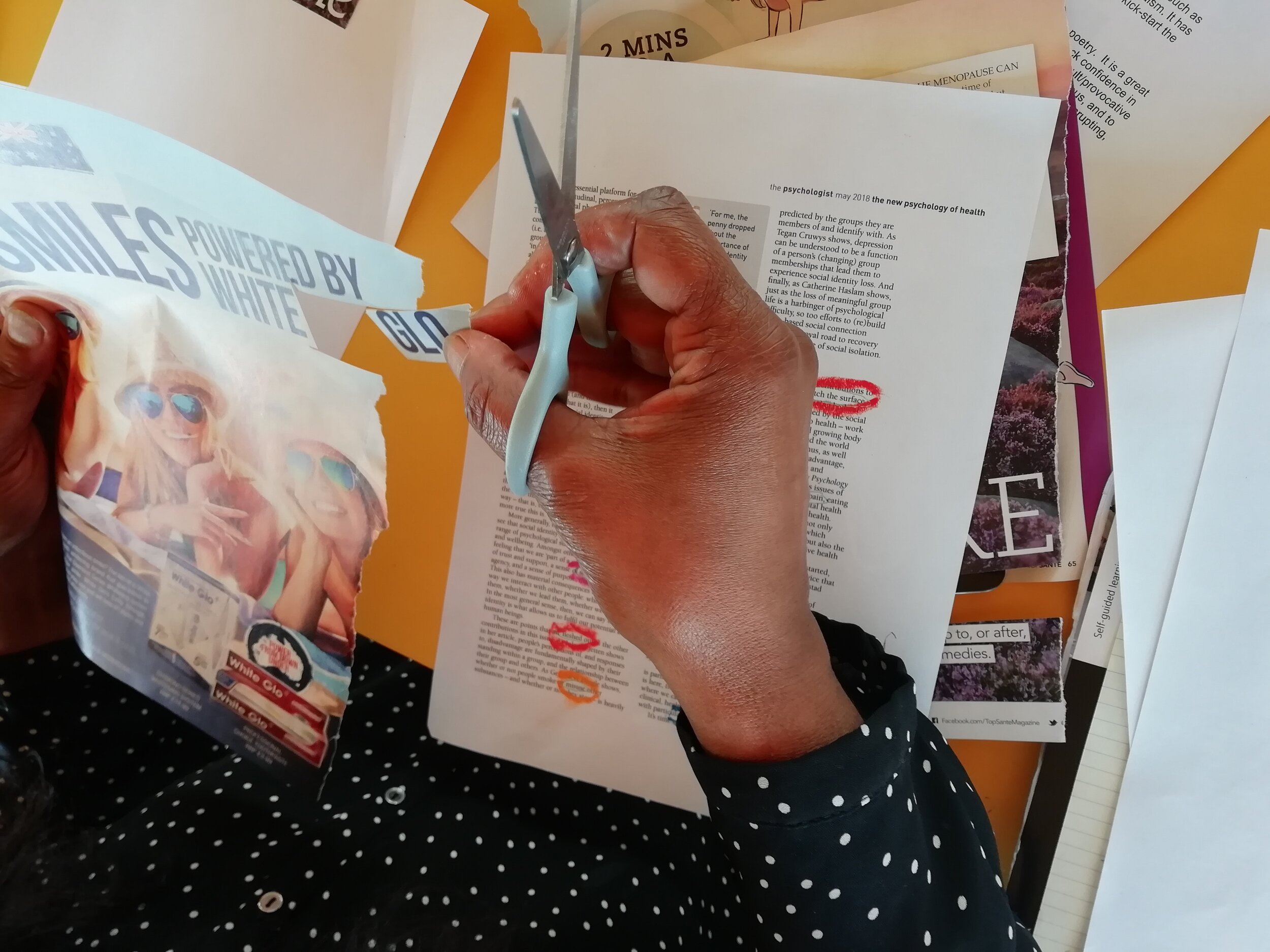CAse study
Researching Discrimination Through Poetry
Lead: Helen Johnson
(Case study originally published in the Collaborative Poetics Resource Pack here: http://blogs.brighton.ac.uk/collaborativepoetics/resources/)
Research Aim
The aim of this research was to use spoken word poetry to explore co-researchers’ lived experiences of discrimination.
Method
The study was funded by the National Centre for Research Methods (NCRM) and based at McGill University’s Participatory Cultures Lab. It was put together initially by Helen Johnson, and then refined further, carried out and evaluated with seven young spoken word artists (Matt Shi, Emily Carson-Apstein, Amy Iliza, Simon Banderob, Xander Macaulay-Rettino, Ellana Blacher and Inara Lalani).
The collective worked together intensively for six weeks, on activities including: reading, writing, editing and performing poetry about discrimination; studying psychological theories and studies on discrimination; learning about social science research methods like interviews and thematic analysis; and creating a chapbook and spoken word show. The group also benefited from masterclass poetry workshops delivered by Cat Kidd, Tanya Evanson, Chris Masson and Deanna Smith.
Findings
The study was evaluated through interviews and focus groups held with the collective and the masterclass poetry tutors. These data were analysed by Helen Johnson using thematic analysis, a technique which looks for recurring themes or patterns across the data. The analysis suggested that participating in the project was a transformative experience for co-researcher s, changing whatthey thought about with regard to discrimination, howthey thought (and felt about it), how they communicated this, and how they intended to respond to discrimination in the future.
Outputs and Resources
Five members of the collective performed their work in a spoken word show, ‘The Struggle Is Real’ at Montreal’s Mainline Theatre. The group also produced a poetry chapbook of their work (‘You Kind of Have to Listen to Me’), three video poems and two academic papers. Two sample poems are shown below.
Creative Response to the Stanford Prison Experiment Study[1]// Matt Shi
It would all go as planned; Zilip Phimbardo was sure of it. The prison was constructed and he would be both superintendent and researcher. This would be his experiment, his contribution, his Stanford, his twenty-one stable, mature, healthy, middle class, educated, normalyoung men. His subjects. He reclined. This would be his summer: days and weeks to summon at will, milliseconds to tally and translate. Zilip Phimbardo’s was the prophet-like voice of scientific analysis.
He covered his mouth with his hand and stroked his beard downward. It was imperative for a man to maintain a perfectly unambiguous beard—sharp, with each sovereign hair submitting to the man’s authority. His fingers paused at his chin, in quiet recognition that he would probably wear his beard in this style for the rest of his life.
From: Interviews about Discrimination // Emily Carson-Apstein
This is how a horror movie starts
from the inside looking out,
my psychiatrist was like
‘maybe you just had a bad experience...’
(Authority in any given situation creates power imbalances.)
As a white person,
I’ve been told my whole life that I’m smart
I’m the one who is right and who has a voice.
I’m not having to try and avoid saying or being anything
I can’t fully understand
to be clear,
to be indelicate,
It’s built into the streets you’re walking on.
It’s the vague stuff,
This big stuff is happening because of the small stuff.
I don’t think you can separate them, really
And it never went away.
I’m onstage.
Ask me for my consent to touch me.
Why does that joke make sense in the first place?
Academic Papers:
· Johnson, H., Macaulay-Rettino, X., Banderob, S., Lalani, I., Carson-Apstein, E. and Blacher, E. (2018) A Rose by any Other Name? Developing a Method of ‘Collaborative Poetics.’ Qualitative Research in Psychology. Available at: https://www.tandfonline.com/doi/full/10.1080/14780887.2018.1442762?needAccess=true
· Johnson, H., Carson-Apstein, E., Banderob, S. and Macaulay-Rettino, X. (2017). 'You Kind of Have to Listen to me': Researching Discrimination through Poetry. Forum Qualitative Social Research/Forum Qualitative Sozialforschung, 18 (2). Available at: http://www.qualitative-research.net/index.php/fqs/article/view/2864
Online:
· A video playlist produced by the NCRM: https://www.youtube.com/watch?v=xCf3F_oF8r8&list=PLzv58M2GAfm5fM6kn1li3YYaB5jawR15x
· Project outline on the Quantitative Methods Initiative site: http://www.quantitativemethods.ac.uk/news/show.php?article=5499
Other Materials:
· ‘You Kind of Have to Listen to Me’ is available for £7 + postage and packaging by emailing Helen Johnson at: h.f.johnson@brighton.ac.uk
[1]See Haney, Banks & Zimbardo (1973) for the original study. You can also read about the experiment at: http://www.prisonexp.org

